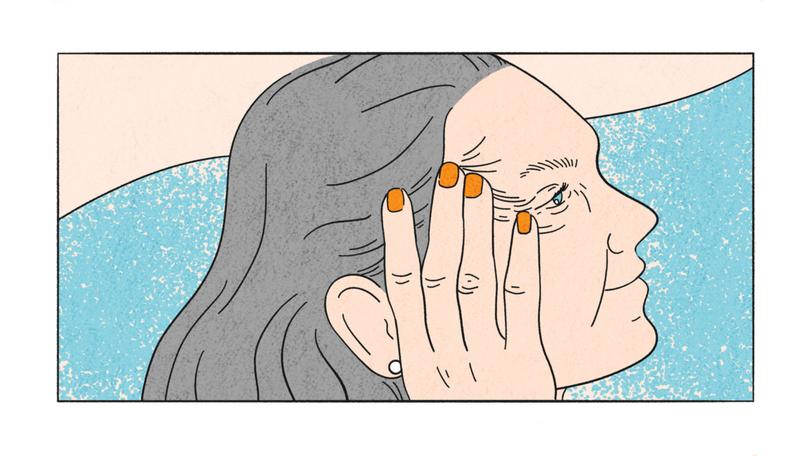THE WASHINGTON POST: Embrace the age of acceptance with three tips to help deal with getting older
Three tips to help deal with the changes

Why can’t anything ever just stay still?
A patient posed this question during a therapy session, reflecting on how, as we age, many things can get thrown into disarray — home life, social relations, job security and health.
It can be difficult to know how to deal with the changes that emerge with getting older.
Sign up to The Nightly's newsletters.
Get the first look at the digital newspaper, curated daily stories and breaking headlines delivered to your inbox.
By continuing you agree to our Terms and Privacy Policy.With age, we increasingly deal with injuries to the sense of sameness and predictability we worked so hard to shape over the years.
We wonder, as my patient did when she asked that question, if we really have control over anything.
This can be especially troubling when our bodies and minds stop working the way they used to.
Aches and pains emerge (sometimes in places we did not even know existed), the mind isn’t as sharp, daytime fatigue increases but sleep is harder to come by, it takes longer to recover from illnesses and injuries, and the person looking back at us in the mirror becomes less and less like the ideal we held in our mind’s eye.
Ageing also challenges our ideas of how life should have turned out.

We may contrast our youthful belief of changing the world with the realisations we acquired as time chipped away at that hope.
Life progressively seems to become less about changing reality and more about accepting its conditions. Experience and deep understanding can only go so far, as age can limit our ability to act.
Our society tends to push us to deny the passage of time, insisting that renewal is possible if we just want it enough.
Ageism has been termed the most invisible form of discrimination and is often met with little cultural or social resistance.
This may be because of the accelerated pace of modern living and a collective desire to deny the fact that time will eventually affect everyone.
This denial is understandable. Acknowledging limitations and grieving the life that could have been can be very painful.
Adapting to shifting circumstances can also be challenging. For instance, children move out, often giving rise to empty nest syndrome (with parents commonly experiencing sadness, grief and loneliness).
Or when we think of retirement, the answer to “what’s next?” can bring despair when we cannot afford to retire or when our entire self-worth is tied to our professional identity.
When meaning in life is tied to sameness, change can be hard to accept, potentially causing us to resort to denial or fall into despair. Mourning what has passed and finding worth in what has remained can be an ongoing endeavour.
Here are some ways we can navigate the passage of time and the effects of ageing.

Accept your starting point
It is easy to become discouraged if we tend to compare where we are now with where we were at our “best” (however one might define this).
It can feel as though the only way to have a sense of accomplishment is to re-create that ideal self.
It is a lot harder to grieve the previous self and accept that we have to face the future from a different starting point.
The tricky thing is that this starting point can change, sometimes dramatically, as life events pile on.
Maintaining a patient, flexible mindset and viewing reality as dynamic and ever-changing can help foster greater acceptance of one’s current circumstances, limiting feelings of helplessness.
Cultivating this way of thinking may take work, though; in older age, sometimes cognitive flexibility may be affected, making this process challenging.
Revisit expectations
Try to temper what to expect from others. One of the hardest aspects of life is realising that the minds of other people are separate entities beyond our control.
If we do not acknowledge this separateness, we could be disappointed when our children and friends are less involved than we had hoped for.
This disappointment may be especially strong when the limitations imposed by age would make such involvement particularly welcome.
Difficult as it might be, softening expectations and cultivating extended social networks with peers can promote a sense of acceptance and belonging, as opposed to being weighted down by feelings of despondence and abandonment.
Do not underestimate your value
When faced with a world that seems to be rapidly moving forward without us, we may sell ourselves short and disregard how much we have lived through, including what we have learned through trial, error and suffering.
There are many self-fashioned experts on the world who are quick to equate opinion with reality, though they lack actual life experience.
As we age, it is important to remember that a perspective based on lived experience matters, and is only afforded by the passage of time. It cannot be bought or short-circuited.
When viewed through such a lens, we may appreciate how time can strengthen a sense of purpose, as opposed to erasing it.
Our presence and contributions can make a difference to others — the example we set will help shape generations within and beyond our time.
Christopher W.T. Miller, MD, is a psychiatrist and psychoanalyst practising at the University of Maryland Medical Centre and an associate professor at the University of Maryland School of Medicine. He is the author of The Object Relations Lens: A Psychodynamic Framework for the Beginning Therapist.
Originally published as Changes that come with aging can be hard to accept. These 3 tips can help.
